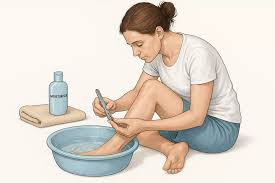Women’s health education is about gaining the knowledge and confidence to make informed decisions at every stage of life. By understanding topics such as reproductive health and mental well-being, women can take proactive steps to protect their overall health. Empowering yourself through education means asking the right questions, staying informed about available resources, and building habits that support long-term wellness and resilience. Here’s how to empower yourself through education on women’s wellness:
Learning Key Areas of Health
Women’s health encompasses several fundamental areas that require attention throughout your lifetime. Reproductive health includes understanding your menstrual cycle, fertility, and contraceptive options. Regular gynecological care involves routine screenings like Pap smears and breast examinations that help detect problems early.
Hormonal health affects multiple body systems and changes significantly during different life stages. From puberty through menopause, hormonal fluctuations can impact your mood, energy levels, and physical health. Understanding these changes helps you recognize normal variations versus symptoms that require medical attention. Mental health is another key component of women’s wellness. Recognizing signs of mental health concerns allows for earlier intervention and better outcomes.
Discovering Wellness Benefits
Education about women’s healthcare provides multiple benefits for your overall well-being. When you understand normal body functions, you can identify when something feels different or concerning. This awareness leads to earlier detection of potential health issues and timely treatment. Knowledge about preventive care helps you make proactive healthcare decisions. Understanding which screenings you need and when to schedule them keeps you ahead of potential problems.
Women’s wellness education also improves communication with healthcare providers. When you understand medical terminology and know what questions to ask, you can have productive conversations during appointments. This enhanced communication leads to better care coordination and personalized treatment plans.
Finding Reliable Information
Accessing accurate women’s wellness information requires using credible sources and avoiding misinformation. Start with healthcare providers who specialize in women’s health, such as gynecologists, family medicine doctors, and nurse practitioners. These professionals can provide personalized guidance based on your individual health history and risk factors.
Reputable medical organizations offer comprehensive online resources about women’s wellness topics. Trusted sources regularly update their content to reflect current medical guidelines and research findings. Educational workshops and seminars in your community offer a chance to learn alongside other women and ask questions in person. Many healthcare facilities, community centers, and women’s organizations often host events covering various topics.
Owning Your Health Journey
Developing a proactive approach to your healthcare involves several key steps. Create a comprehensive health history that includes your family’s medical background, your own health concerns, and any medications or supplements you take. Schedule regular check-ups and screenings according to recommended guidelines for your age group. Keep track of appointments and test results in a health journal or digital app.
Build a relationship with healthcare providers who understand women’s health and make you feel comfortable asking questions. Don’t hesitate to seek second opinions when facing significant health decisions. Your health is worth the time and effort required to find providers who respect your concerns and involve you in treatment planning.
Schedule Your Women’s Health Check-up
Taking control of your health starts with education, but action transforms knowledge into better outcomes. Make sure you stay current with recommended screenings and preventive care measures appropriate for your age and risk factors. Regular check-ups provide opportunities to discuss concerns, update health information, and receive personalized guidance from healthcare professionals. Contact a trusted healthcare provider near you today to schedule your next women’s health appointment.














